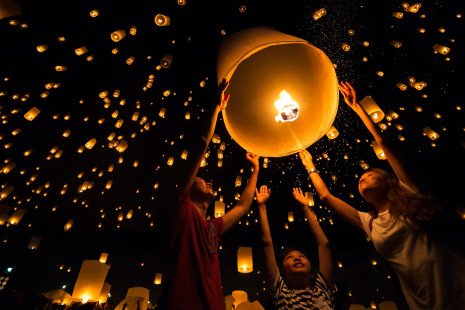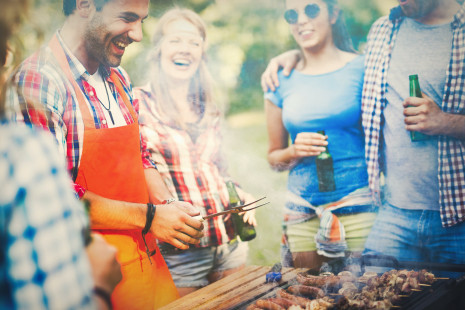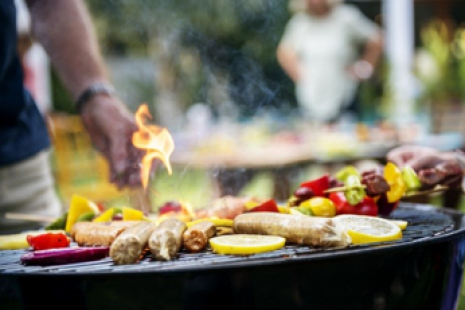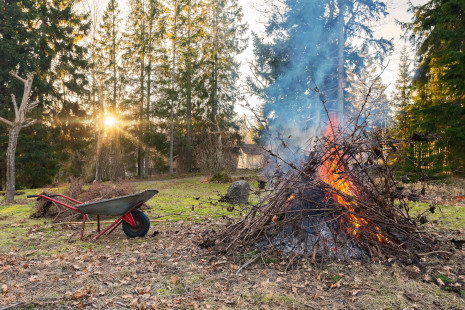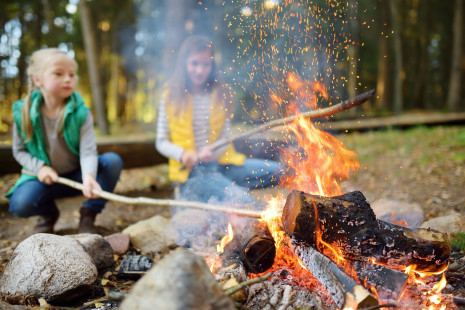Fire safety outdoors
Whether you are camping, barbecuing or just enjoying the beautiful English countryside, make sure you follow some simple steps to prevent fires starting and spreading outside.
Countryside and wildfires
Every year, fire destroys thousands of acres of countryside and wildlife habitats. Fires can happen at any time of year but they are particularly common in summer when the ground is dry. Wildfires can easily be avoided if you follow some simple steps.
You should:
- never have open fires in the countryside - always have them in safe, designated areas.
- never throw cigarettes out of car windows.
- put out cigarettes carefully and other smoking materials and dispose of them safely.
- never drop litter. Reflective items, such as bottles or glass, can start a fire. Take litter home or dispose of it in a waste or recycling bin.
- never use petrol or paraffin to start or revive a barbecue - use only recognised lighter starter fuels on cold coals.
- only use barbecues in designated areas of the countryside and public parks and carefully follow any safety guidance.
- make sure your barbecue is well away from sheds, fences, trees, shrubs or forestry waste.
- never use barbecues during heatwaves, spells of prolonged, hot weather or heightened fire risks.
- report any fires that you see immediately.
- not attempt to tackle fires that cannot be put out with a bucket of water – leave the area as soon as possible.
- prepare for the arrival of the fire and rescue service at the pre-arranged meeting point, by unlocking gates, if necessary.
Find out more about protecting our countryside in the countryside code.
Sky lanterns
Every year, sky lanterns trap, injure and kill animals. They can also cause fires, which destroy habitats and set animal housing, feed and bedding alight.
We strongly recommend that you do not use sky lanterns as you have no control over them once they have been released. Sky lanterns are also banned on some council-owned land.
Barbecues
It’s easy to enjoy barbecues safely if you follow a few simple steps.
Before you start you should:
- never use a barbecue indoors, in a tent or on a balcony
- follow the safety instructions provided with disposable barbecues.
- never use petrol or paraffin to start or revive your barbeque - use only recognised lighter starter fuels on cold coals.
- only use barbecues in designated areas of the countryside and public parks and carefully follow any safety guidance.
- make sure your barbecue is well away from sheds, fences, trees, shrubs or garden waste.
- never use barbecues during heatwaves, spells of prolonged, hot weather or heightened fire risks.
During cooking you should:
- use enough charcoal to cover the base of the barbecue, but not more (normally around 5cms or 2 inches)
- keep a bucket of water or a large bottle of water, sand or a garden hose nearby for emergencies
- never leave a lit barbecue unattended
- keep children, pets and garden games away from the cooking area
- not drink too much alcohol if you are in charge of the barbecue
- After cooking you should: fully extinguish any charcoal with water and dispose of it safely
- make sure the barbecue is cold before moving it
- when cold, empty ashes onto bare garden soil, not into dustbins or wheelie bins - if they’re hot, they can melt the plastic and cause a fire
Storing and maintaining gas BBQs
You should:
- never store gas cylinders under the stairs – if there is a fire they might explode and block your escape route
- store gas cylinders outside, away from direct sunlight and frost
- take care when turning bottled gas barbecues on and off
- make sure the tap is turned off before changing the gas cylinder
- turn the gas supply off first after cooking and then the barbecue control - this will stop any gas from leaking.
- turn off the gas if you suspect a leak and try brushing soapy water around all the joints, watching for bubbles
- make sure all joints are tightened, safe and secure
- change gas cylinders outdoors or in a well-ventilated area
Gas Safe Register has a dedicated section on barbecue safety on their website.
Garden bonfires
Follow these safety tips:
- always check that no children or animals are hiding in the bonfire before lighting
- keep a bucket of water or hose nearby in case of an emergency and to damp down afterwards
- keep bonfires well away from hedges, fences and things that might catch alight
- never use petrol or lighter fluid on a bonfire
Although there are no laws against lighting bonfires, there are laws against the nuisance they can cause. You can get more information here https://www.gov.uk/garden-bonfires-rules.
Camping and caravanning
Staying in a tent
Camping can be a lot of fun, but there are different and potentially more serious risks when you are living and cooking outdoors. A fire can destroy a tent in less than 60 seconds, for example. To keep yourself and others safe you should:
- never use candles in or near a tent – torches are safer
- never smoke inside tents
- place your cooking area well away from the tent
- keep your cooking area clear of items that catch fire easily (‘flammable’ items), including long, dry grass.
- keep cooking equipment like camping stoves away from tent walls as they could set alight easily
- keep matches, lighters, flammable liquids, cooking equipment and gas bottles or canisters in a place where they can’t be knocked over and out of children’s reach
- make sure you are able to escape from a fire, including by cutting your way out of the tent if necessary
- make sure everyone knows how to put out clothing that’s on fire – stop, drop and roll
- make sure your tent is at least six metres away from parked cars, other tents or caravans to reduce the risk of fire spreading
- make sure you know what the fire arrangements on the campsite are
Staying in a caravan
Many of the rules that apply in the home also apply to caravans so it is important not to let your guard down when it comes to fire safety. You should:
- fit and test a smoke alarm - a working smoke alarm is just as important in a caravan as any other home
- take special care when cooking – don’t leave pans unattended
- turn off all appliances before you go to bed
- make sure ashtrays are made of a material that can’t burn – and never smoke in bed
- never dry clothes over the stove
- remove any litter and rubbish near the caravan to reduce the risk of fire spreading
- make sure the caravan is ventilated and never block air vents to avoid build up of poisonous gases
- consider keeping a fire extinguisher by the entrance, but always read the instructions before using it
Boats
Fires can spread quickly on a boat, even on water. To keep yourself and others safe, you should:
- fit suitable smoke and carbon monoxide alarms to help keep you and your crew safe
- regularly check and maintain your boat’s fuel, gas and electrical systems – if you smell gas or petrol, act immediately
- never leave your cooking unattended – turn it off until you come back
- refuel portable petrol engines and/or portable tanks ashore – never onboard
- never leave combustible items like soft furnishings, furniture or drying fabrics, too close or above a solid fuel appliance
- keep the cabin well ventilated to avoid build-up of poisonous carbon monoxide
- make and agree an emergency plan with everyone on board before you set out
- If in doubt, don’t fight a fire yourself. Get out, stay out and wait for the fire and rescue service.
Find out more about boat fire safety on the Boat Safety Scheme website.
